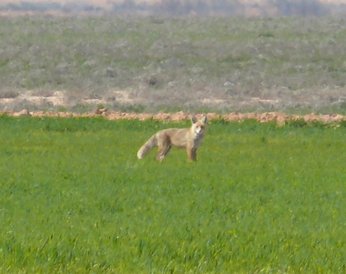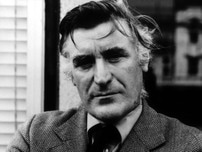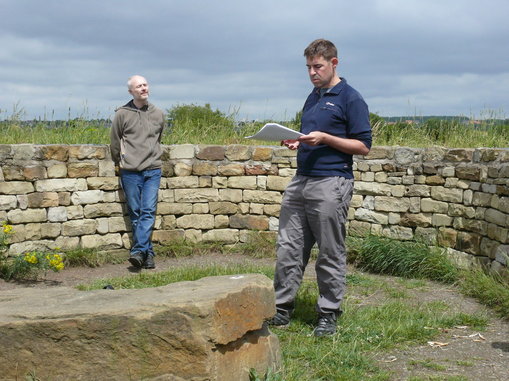 The Belchite fox photo: Laurence Rose
The Belchite fox photo: Laurence Rose
For one so ubiquitous in folk stories, myths and reality, it is a difficult animal to know. Ours is a rural population, nocturnal, rarely seen, unlike the urban foxes that now inhabit many towns and cities in the UK. Sometimes, it seems they wield strange powers: in 2011 Czech scientists discovered that foxes are somehow able to ‘see’ the Earth’s magnetic field, and use it for range-finding before pouncing on their prey. My understanding of my elusive neighbours is almost entirely gleaned from footage recorded while I sleep:

Rudolf Těsnohlídek's The Adventures of Vixen Sharp-Ears appeared as a serialised comic-strip in the Czech newspaper Lidové noviny – People’s News – in 1920, inspiring the seventy year-old Leoš Janáček to write one of the 20th century’s best-loved operas. The Czech word Bystroušky, sharp-ears, has a double meaning, synonymous with cunning. The Cunning Little Vixen, as the opera eventually became known in English, transformed the originally comedic cartoon into a philosophical reflection on the cycle of life and death, and desire for a return to simplicity.
Ted Hughes’s The thought-fox is a poem about writing a poem. In a room late at night the poet is sitting alone at his desk. Outside the night is dark and silent, but the poet senses a presence ‘entering the loneliness.’ The night is the darkness of the poet’s imagination out of which a vague idea emerges. It has no clear outline; it is not seen but sensed; it is compared to a fox, delicately sensing its way through the undergrowth. The fox emerges only slowly out of the formlessness of the night. The fox is the poem, and the poem is the fox: ‘the page is printed.’
National Meadows Day
 Matthew Clegg (left) and Brian Lewis, RSPB Adwick Washland today
Matthew Clegg (left) and Brian Lewis, RSPB Adwick Washland today
Matthew’s exploring of landscape through words does not, as he explained, always involve making a literal connection. One reading, at a stone-built viewpoint between two areas of marshland, was of his reworking of the rallying speech from Aristophanes’ The Birds, entitled Hoopoe’s Cuckoo-song. Birds, real and literary, were always close at hand, from recently-fledged avocets – a local success story – to the ones featured in the final short poem of the day. In this, Matthew described a flock of starlings landing on high tension electricity cable: ‘their song is a kind of current, and the current is a kind of song.’
 RSS Feed
RSS Feed
